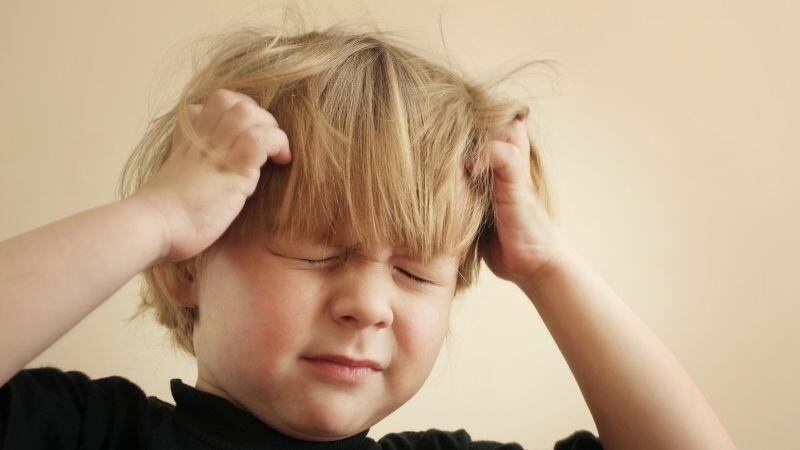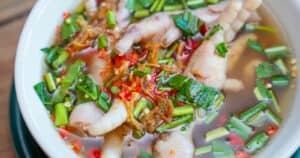Do spicy foods ever leave your skin feeling like it’s crawling? Maybe your lips tingle, your ears burn, or your scalp itches after biting into a fiery chili pepper. If so, you’re not alone.
For many
But why does your skin suddenly revolt when you eat spicy dishes? The answer has to do with how your body responds to culinary heat.
When you consume spicy foods, capsaicin interacts with receptors in your mouth and has system-wide effects. This includes triggering nerves, cells, and inflammation pathways in your skin that make you more prone to itching and irritation.
So if you’re wondering…
Can spicy food cause itchy skin?
The short answer is yes. Spicy food chemicals like capsaicin can spark temporary skin itching, hives, flushing, and other pesky reactions in susceptible individuals.
Read on to learn more about the science linking spicy food and itchy skin. This article will uncover:
- How spicy food chemicals affect your skin
- Common itchy skin symptoms
- Tips to prevent discomfort
Get ready to break the spicy food-itch cycle so you can keep fiery foods on the menu without irritation!
What Makes Some Foods Spicy and Irritating
Before diving into why spicy foods make you itch, it helps to understand what gives these dishes their signature kick in the first place.
The compounds responsible for spiciness are called capsaicinoids. They are produced by chili peppers and give them that addictive heat and burn.
The most common capsaicinoid is capsaicin. It activates receptors in your mouth called TRPV1 that detect heat and pain signals. So even though there’s no real “burn” from the
This sets off a chain reaction of defense mechanisms as your body tries to cool itself down. You’ll start sweating, blood vessels dilate, and you produce tears and mucus.
How Capsaicin Causes Itchy Skin
When you eat spicy foods containing capsaicin, the reaction isn’t limited to your mouth. Capsaicin has system-wide effects as it gets absorbed into your body. This includes effects on your largest organ – your skin!
Here are 3 ways scientists believe capsaicin causes itchy, irritated skin:
1. Substance P Activation
Substance P is a neurotransmitter in your nerves that relays signals about pain and itching. When capsaicin binds to TRPV1 receptors, it causes substance P to release histamine. This makes certain nerve fibers extra sensitive and prone to feeling itchy.
2. Vasodilation Effects
Capsaicin triggers vasodilation – the widening of blood vessels to release heat. This rush of blood to your skin can make it red, warm, and itchy. Flushing, hives, and tingling may occur.
3. Mast Cell Degranulation
Mast cells in your skin respond to capsaicin by releasing inflammatory compounds like histamine. This can cause redness, rashes, itching, and swelling.
So in summary, capsaicin interacts with receptors, nerves, blood vessels, and cells in ways that make your skin more reactive and itch-sensitive. Let’s look closer at the itchy symptoms it triggers.
Common Itchy Skin Reactions to Spicy Foods
From annoying to downright painful, here are some ways spicy foods can make your skin itch and bother you:
- Hives or urticaria – Red, raised itchy welts on the skin.
- Flushing – Reddening of the face/neck. Warm, tingly skin.
- Itchy lips or mouth – Spicy foods irritating mouth tissues.
- Itchy ears – Inside and around the ear canals. Hotness sensation.
- Itchy nose – Runny, irritating nose. Sneezing fits.
- Itchy scalp – Tingling and burning on the head. Headache.
- Itchy throat – Scratchy, irritated throat or cough.
- Itchy eyes – Burning, watery, stinging eyes.
- General rash – Bumpy red rash anywhere on body.
- Eczema flares – Capsaicin worsens eczema itching.
- Prickly heat – Spicy foods induce sweating/heat rash.
As you can see, capsaicin can have wide-ranging effects that make skin sensitive, reactive, and itch-prone all over your body. The irritation is usually temporary, but quite annoying!
Tips to Prevent Spicy Food Itchy Skin
If you want to keep enjoying your spicy fajitas and extra fiery Thai food, try these tips to prevent itchy skin reactions:
- Take antihistamines to control inflammation from histamine release.
- Apply hydrocortisone cream to itchy areas for relief.
- Rinse skin with cool water to calm irritation. Cold showers can help too.
- Avoid scratching or rubbing – this makes itching worse!
- Wear loose, breathable clothes that won’t stick to skin.
- Stay hydrated – drink plenty of water to cool and flush out irritants.
- Limit alcohol, which exacerbates skin reactions to spices.
- Build tolerance slowly – don’t go overboard with ultra-hot dishes.
With some smart precautions, you can keep your skin comfy and continue indulging in delicious spicy cuisine. Moderation and common sense go a long way.
What About Spicy Foods That Don’t Contain Capsaicin?
You might think you’re off the hook if you steer clear of chili peppers and stick to seemingly milder spices that can still pack a punch, like ginger, horseradish, or wasabi. But hold up!
These spicy foods contain their own stimulating compounds that can also irritate skin for those sensitive:
- Ginger – Contains gingerol, which warms receptors much like capsaicin. Can cause flushing and itching.
- Horseradish – Allyl isothiocyanate gives horseradish its sinus-clearing
spice . May provoke skin redness and tingling. - Wasabi – Similar to horseradish, wasabi contains isothiocyanates that excite nerves, potentially leading to skin reactions in susceptible individuals.
So if you’re prone to spicy food-induced skin irritation, don’t assume you’re in the clear with non-pepper spices! Start slowly and monitor your skin’s reactions whenever trying something with a big flavor punch. Everyone has their own unique tolerance level.
FAQs About Spicy Foods and Itchy Skin
Still have questions about the relationship between spicy foods and itchy skin? Here are answers to some commonly asked questions.
Why is my skin itchy after eating spicy food?
Your skin gets itchy after spicy food due to capsaicin triggering the release of substance P, histamine, and other compounds that irritate nerves and mast cells in your skin. This causes redness, tingling, hives, and itchiness.
Why does my scalp itch when I eat spicy food?
Like the rest of your skin, your scalp also has nerves and cells that react to capsaicin. This causes inflammation, flushing, and irritation leading to an itchy, tingly scalp. Increased circulation can also play a role.
Can spicy food make you itchy without a rash?
Yes, it’s possible to experience itchiness without visible hives or rashes. Even minor inflammation and irritation induced by capsaicin can make your skin prickly and sensitive without obvious signs.
Is an itchy scalp after spicy food an allergy?
Not necessarily. For most people, it’s simply a sensitivity to capsaicin. However, some may have an allergy making them more reactive. See an allergist if scalp itching is severe every time you eat spicy food.
Why do I get itchy when I eat spicy food?
You likely get itchy from spicy food due to having sensitive skin or nerves that overreact to compounds like capsaicin. However, certain conditions like eczema or skin conditions can also make you more prone to itchiness from spices.
Should I avoid spicy food if it makes me itchy?
Not necessarily, unless you have a diagnosed capsaicin allergy. Try taking antihistamines beforehand and slowly increase your tolerance. But avoid spicy food if itching is severe or causes hives/swelling that interferes with breathing.
Why Do Some People React While Others Don’t?
Not everyone experiences itchy skin from eating spicy foods. Genetics, individual tolerance levels, and skin sensitivity play a role in determining reactivity. People prone to conditions like eczema seem more susceptible. Understanding your personal tolerance can help prevent discomfort.
Can You Become Allergic to Capsaicin?
While rare, some people can develop contact allergies to capsaicin with repeated heavy exposure, especially those who handle peppers regularly. This can result in rashes, hives, and itchiness from even small amounts. An oral challenge test can diagnose capsaicin allergy.
Tips for Cooking With Spices If You’re Sensitive
You don’t have to fully avoid spicy cuisine with skin sensitivity. Try these tips: use gloves when handling peppers, avoid touching eyes/face when cooking, wash immediately after handling spices, and consider taking antihistamines before eating.
Can Topical Creams Containing Capsaicin Also Cause Reactions?
Yes, topical capsaicin creams used to treat muscle pain can also irritate skin in those sensitive to capsaicin systemically. Reactions include stinging, redness, and itching. Always do a skin patch test before using capsaicin creams as treatment.
Conclusion: Don’t Let Spice Give You Itchy Skin
For those prone to sensitive skin, the capsaicin in spicy foods can cause some unpleasant itching and stinging. But with smart precautions, you can build your tolerance and block inflammation to keep enjoying your favorite hot, spicy dishes.
Be sure to monitor your reactions closely, especially if you already have skin conditions like eczema or psoriasis that get triggered by spices. With the right strategies, you don’t have to give up the delicious heat from your favorite chili peppers and curries.
So keep a cool head, listen to your skin, and take steps to prevent discomfort. With the itchy skin-spicy food link explained, you now have the knowledge to





